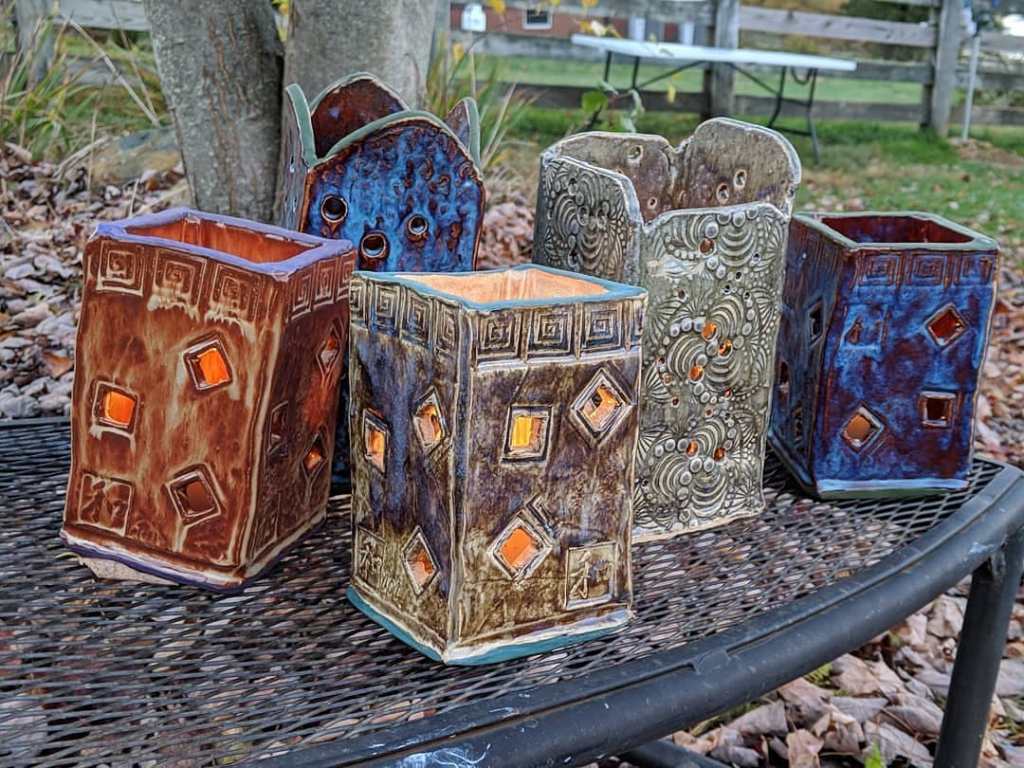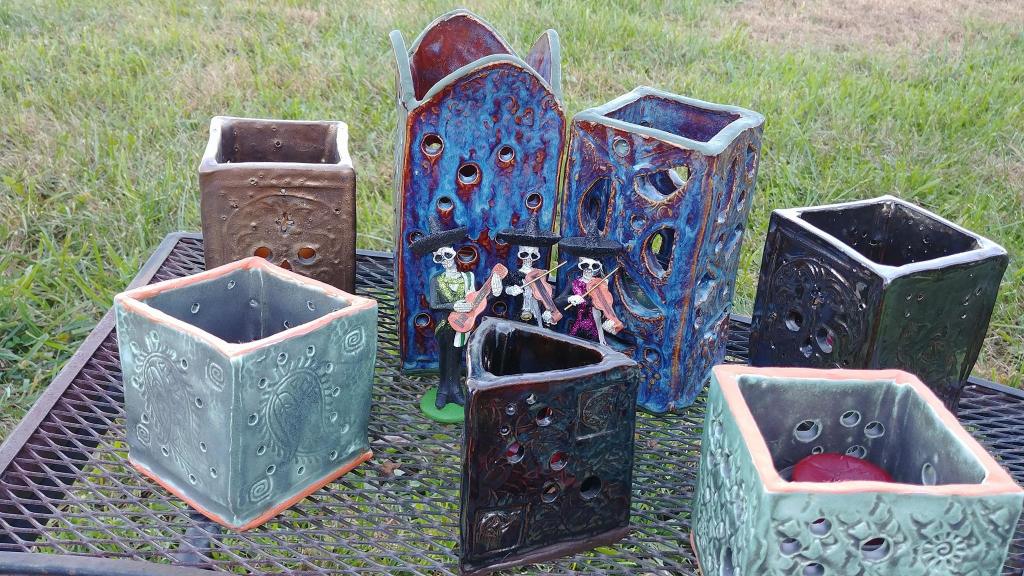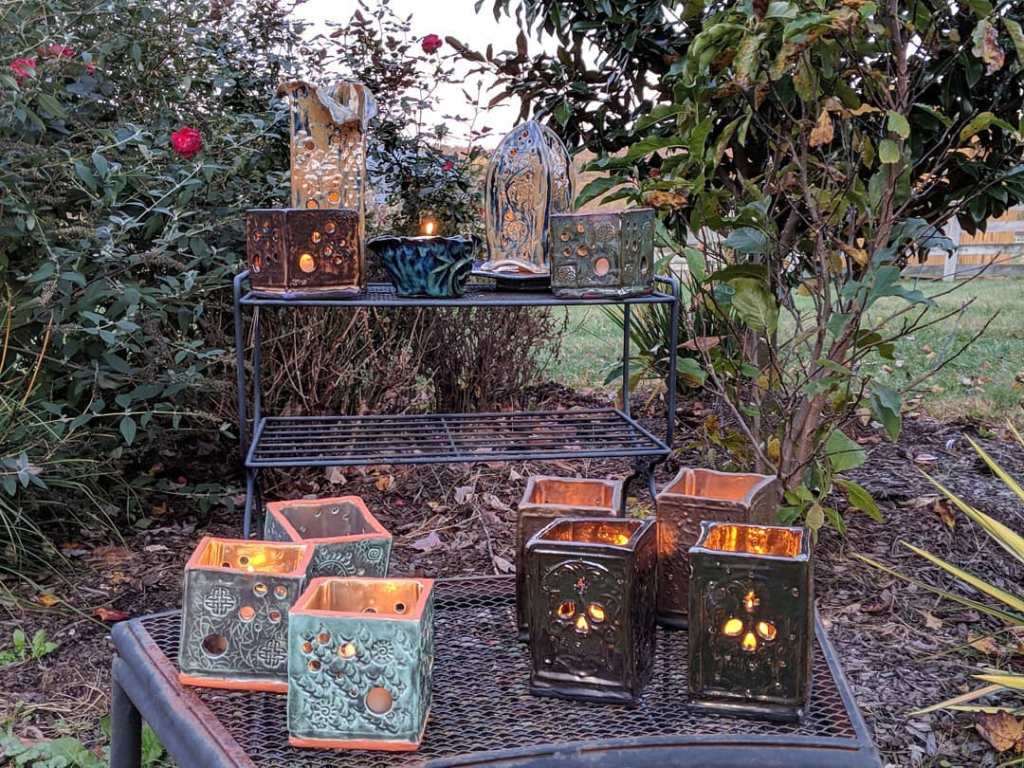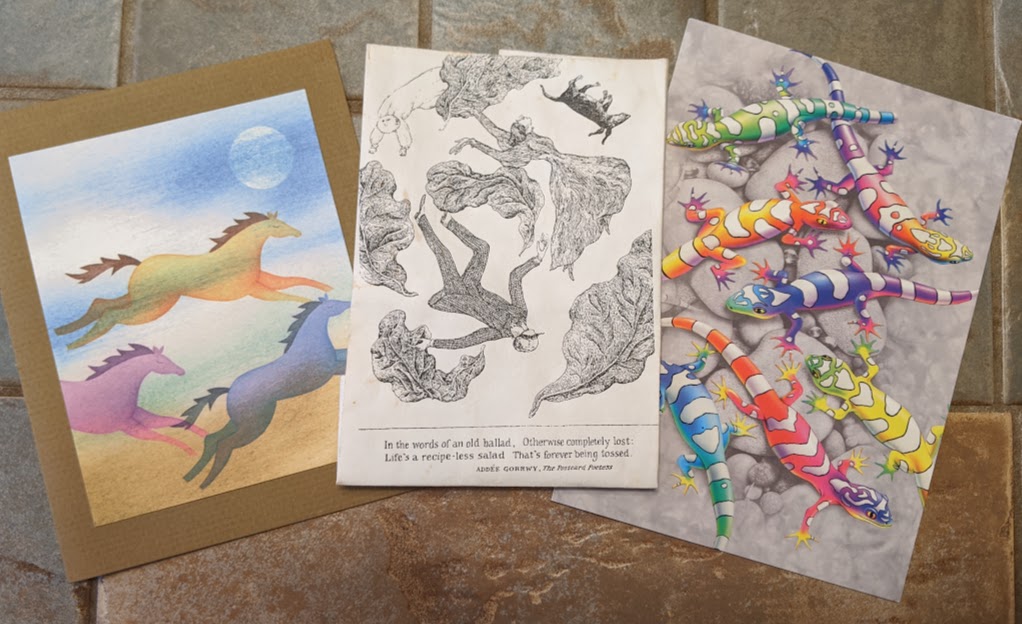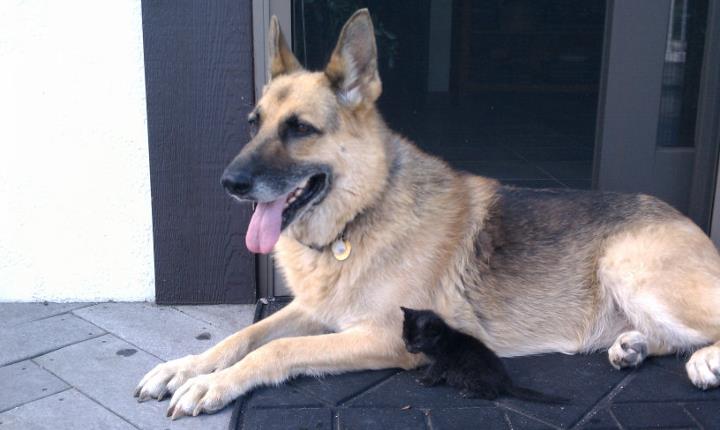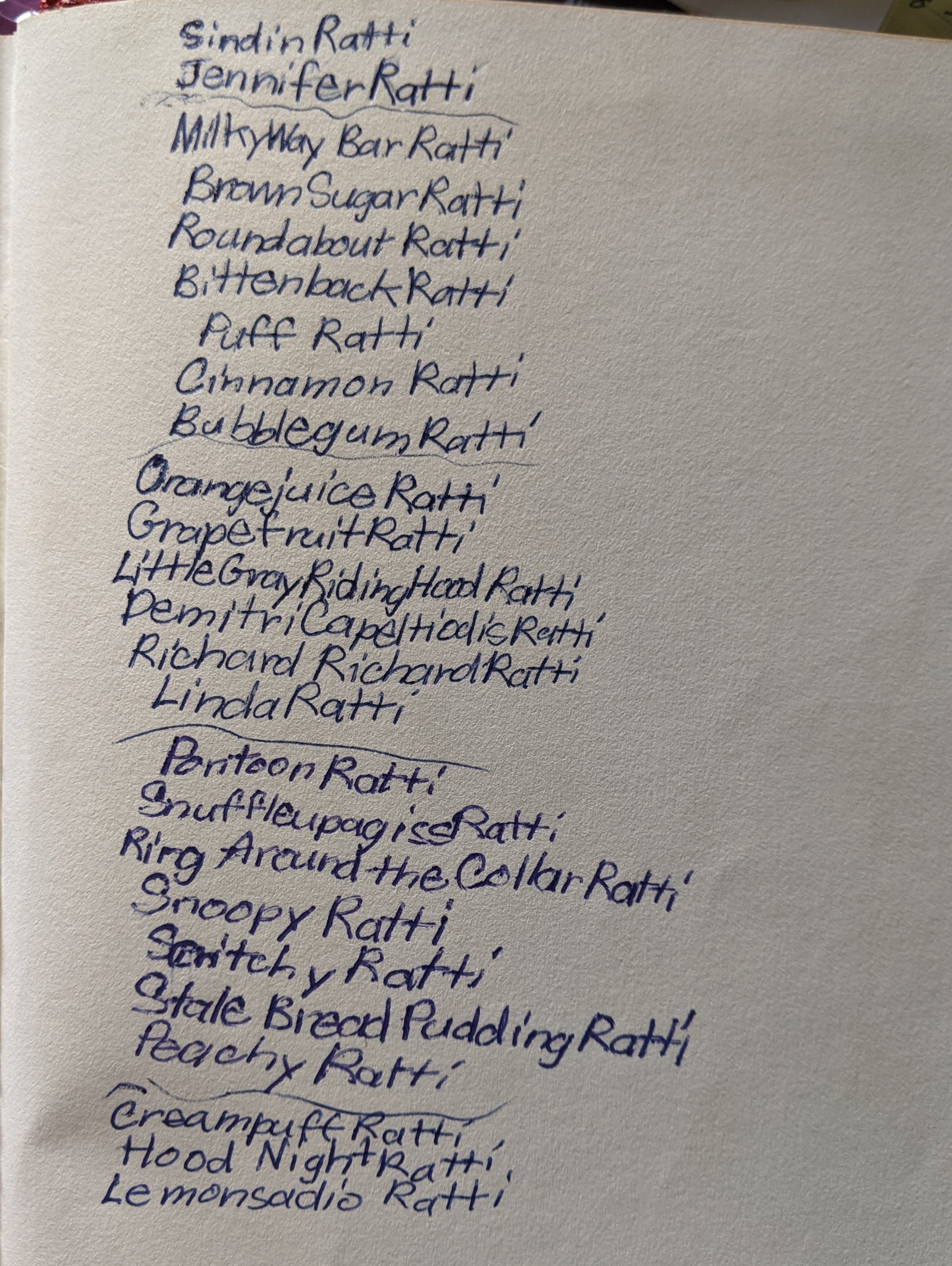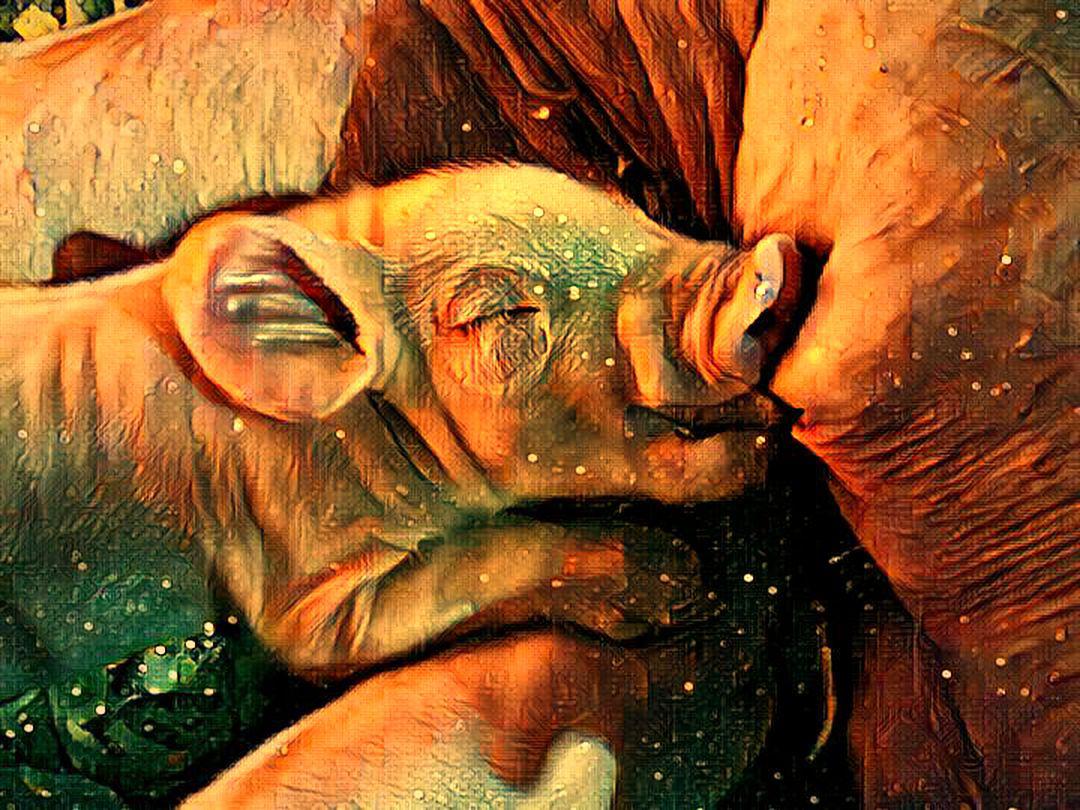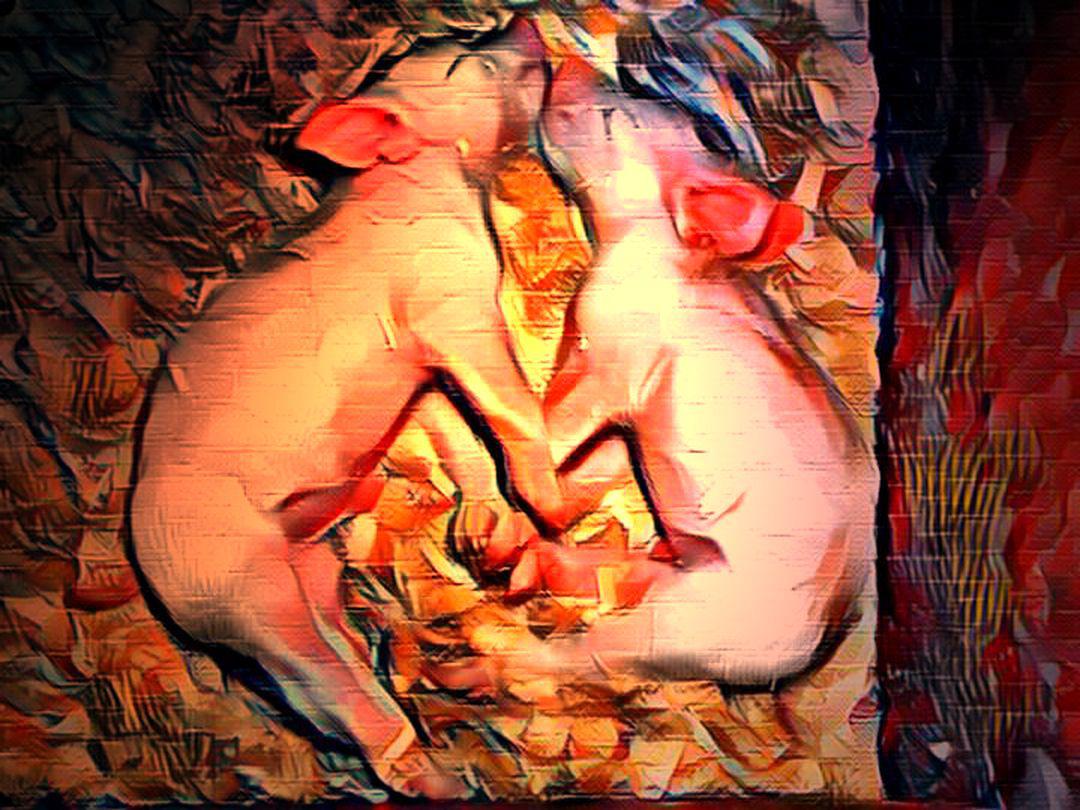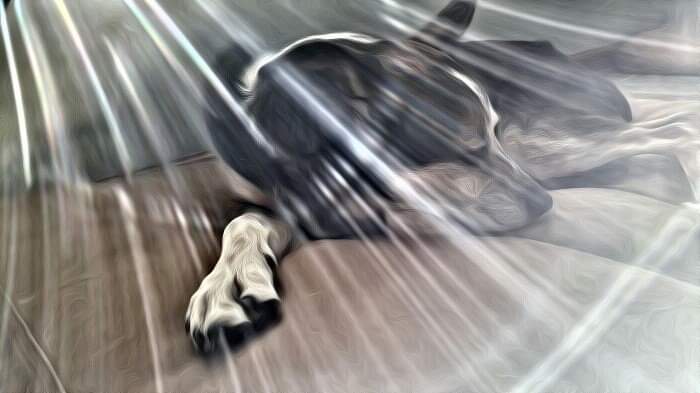
I have a very active dream life. Some dreams I remember as if they really happened to me, and some I wake up from feeling like I lived a whole lifetime during the dream but I don’t remember any of the details. When I was too young to be worrying about such things – maybe nine or ten – I used to worry either that I would wake up and find that I was still an infant and my whole life so far had been a dream, or that I was alive only in someone else’s dream and when they woke up I would die, or disappear.
I don’t have recurring dreams, but I do dream of recurring places. There is one house that is my grandmother’s house, though it is nothing like her house or any other house I’ve been to. There’s another house that is my aunt’s, though it is also not like anywhere she lived or that I have been. I’m not sure I’ve ever seen either my grandmother or my aunt in their dream house; I just know where I am when I am there. There are several recurring farms, though those tend to be at least loosely based on farms where I worked in the past.
A few nights ago, I almost had a dream about my mother. I was driving to have dinner with her, though I did not get that far from my house before I woke up. I have friends whose mothers have died who have dreams about them with some regularity, or they have something special happen every year on their mother’s birthday. Though I am torn between thinking dreams or signs from dead loved ones are just that – something from them – or things my mind makes up to make me feel better, I am always a little envious of these friends. I think it’s possible I have had dreams that featured my mother in the past fifteen years, but I can’t say that I have had a dream that feels like any kind of message.
My first experience with death and my first experience of dreams like this involved my grandmother, my mother’s mother, who died when I was in college. Several years after her death, I dreamed that I was with my family at the beach – my parents, my sisters, and my grandmother. Everyone else was distracted but I was watching my grandmother swim. I was worried that she was getting knocked down by the waves, but she looked back at me and dove into a wave, and I saw her mermaid tail flash as she swam out to sea. My family was furious at me because I was supposed to be watching her and they all thought she drowned. I was trying to explain that she was fine, she had just turned into a mermaid, when I woke up crying.

Eight years ago my aunt and my father died within two weeks of each other. Eight years ago and twelve days, to be precise, for my aunt, and eight years less two days for my father. I have had one dream about my father in those eight years. He appeared at some kind of gathering or party I was attending, and he was completely silent (a good way to tell he was dead – we have that in common). He pointed at himself, and then he pointed at me, and then he pointed to a mirror. He did not say, but I clearly understood: if you want to see me, just look at yourself. I am always there. I found this both comforting and disturbing, as I have always found my similarities to him.
I have had two dreams about my aunt since she died. The first one was very soon after she died. She called me on the phone, and I started crying when I heard her voice, and she asked why I was crying. I told her it was because I was sad that she was dead, and she laughed and said “You can talk to me any time you want! Just pick up the phone.” This is partly literally true – at least I can hear her voice, because I still have a message from a few weeks before she died. I also do always feel like she is nearby, though I also miss her tremendously. In the other dream I had about her, two of her closest friends were driving an enormous SUV unlike anything either of them would actually drive, one in the driver’s seat and one riding shotgun, and my aunt was looking between them from the back seat. I exclaimed “Becca! Becca is in the back seat!” and they said “Of course she is, honey.”
I’m not surprised that my mother has been on my mind recently, in election season. It used to drive me crazy that she was the most neutral person I ever met. When I was upset about something and I wanted her to take my side, I very much did not want to hear about how the situation might look to the other person. My father used say “There are two sides to every story, and the truth is somewhere in the middle,” but he only believed this if they were two other people. If he was one of the sides, there was only one true side to the story, and it was his. Most of the time I can see that there are two sides, or rather, most of the time I don’t see in terms of sides. But when I do see sides, and when I take a side, there’s not much chance of moving me off my position, or even making me hear or see anything else.
I’ve been thinking that my mother has been on my mind because I could use her perspective, and because now is a time when I would find it really helpful to hear about the other side. But the more I write, the more I realize it’s been a really long and anxiety-ridden and exhausting year, and I just want my mom.

